HYPNOBEAT: An 808 odyssey - Feature on RA
Mardi, 6 Janvier, 2015 - 01:39
HYPNOBEAT: An 808 odyssey - Feature on RA
Artistes:
Label:
Styles:

30 years ago, Peter Weiss's live drum machine project was pushing techno before there was such a thing. Now, with help from Helena Hauff, he's rebooted Hypnobeat for a new generation.
"I'm sure we will get bored of it soon," Peter says dryly between sips of Chardonnay. "But that's when we should collaborate with someone like Children Of Leir. I have the romantic vision of when Throbbing Gristle were recording the Heathen Earth album live in their studio with invited guests around them."
Hauff laughs, although the idea is not too far fetched. Children Of Leir are a psychedelic two-piece who could jell with the rough edges of the Hypnobeat sound, and they're lined up for the first release on Hauff's new label, Return To Disorder. And there is a sense that Hypnobeat needs to evolve to stay interesting. Weiss has been performing under the banner on and off since 1983, largely with the same tools throughout those 30 years.
One TR-707 and three TR-808s, running through an array of effects, form the core of the rhythm-heavy Hypnobeat sound. "I would like to have seven machines on stage but we were not capable of programming them live any more," Weiss laments. "It just looks so good!"
A few hours later, the ominously titled Bleak Future party is warming up. A young, eager crowd is loosening up to the rough house and techno being played ahead of Weiss and Hauff's performance. By the time the duo take the stage, the venue is comfortably full, and the dance floor stays energised through an hour of sharp angles and wild distortion.
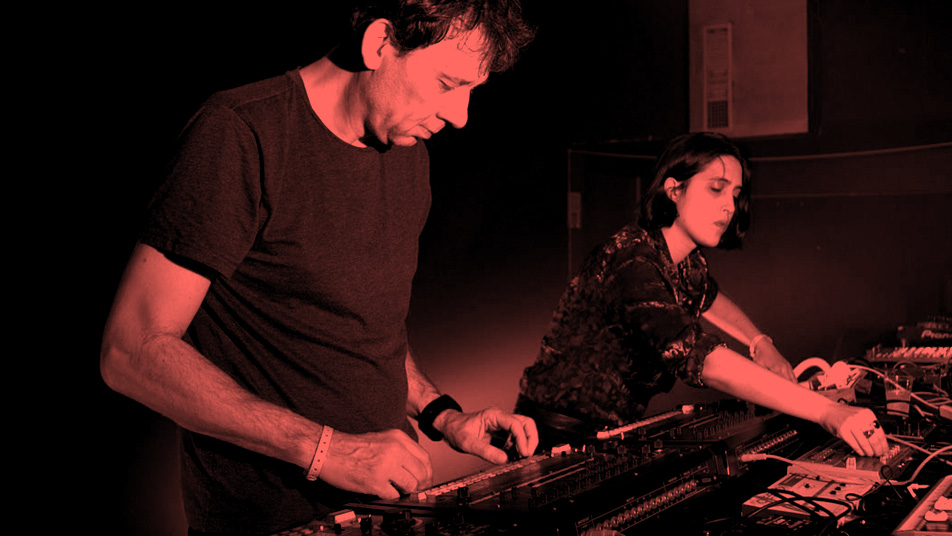
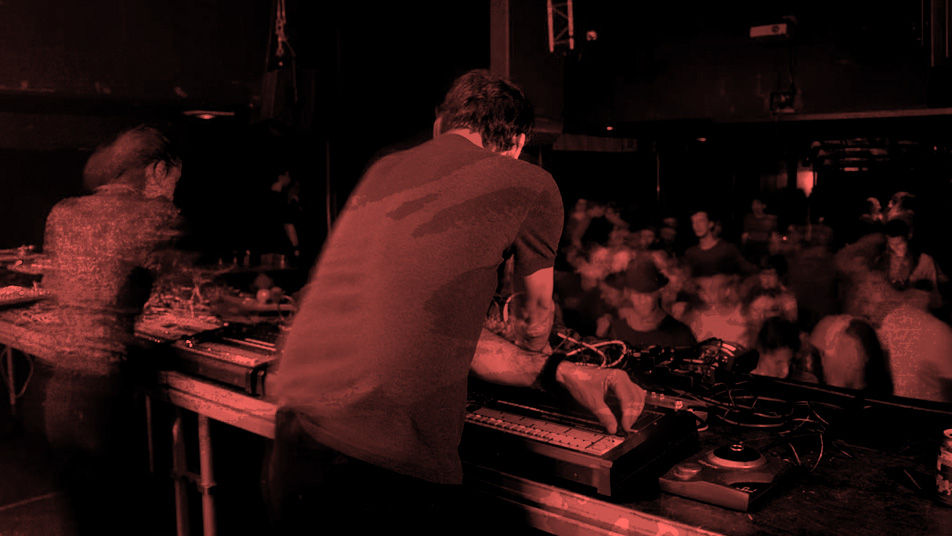
"I wish all those people raving about this boring tech house would experience a night like this," Weiss says a week later, during a three-way post-mortem over Skype. "It's a parallel club world that's growing bigger and bigger, and it gives you so much more."
This world is different from the one Hypnobeat was born in, when popular electronic music was still in its infancy and punk loomed large. In the suburbs of Frankfurt, Weiss and his long time friend Pietro Insipido caught the DIY bug. They would enthusiastically record household items and budget rhythm machines to form primitive tape recordings. One day in a record shop, Weiss was told that two local guys were driving to a Cabaret Voltaire gig in Cologne that he wanted to attend. They turned out to be Tobias Freund (whose accomplished history in electronic music would require a whole separate article) and Lars Müller, who was later known as Porn Flake or Victor Sol. Weiss went over to their apartment and was bowled over by the drum machines and synthesisers they had been collecting.
Eager to try his hand at programming their 808, Weiss brought some hand-written patterns over; from these notes, he produced "Daktari Missiles," and Hypnobeat was born, with Freund and Müller joining him for live performances over the coming years. Listening to "Daktari Missiles" now, it's staggering to consider it was recorded in 1984, when Detroit techno was but a distant twinkle on the horizon. The drum sounds evoke the nascent electro scene of the early '80s, but electro was only just hitting its stride, in tandem with this murmuring of experimental activity in central Germany.
"I used to call Hypnobeat in the '80s a new tribalism," says Weiss. "I was always attracted to African rhythms of all sorts because they are so complex, so I thought it would be nice to interpret this with rhythm machines. I didn't know that this would be called techno a few years later."
Hypnobeat's early days were a forerunner to the acid and techno explosion of later years, something that lingers on Weiss's mind. In his online documentation of Hypnobeat, Weiss uses terms such as "prototype Techno" and "Proto-Acid," alongside wilder tags like Hypnosurf and Hypnodelic Ambient (which speak to Weiss's day job as a copywriter as much as anything else).
"My mistake in the '80s was I was always getting some other instruments into the game," says Weiss. "I was a bit sad about the fact that we invented techno and nobody knows about it!"
So what happened to Hypnobeat when the acid house explosion took hold? By 1987 the momentum of the group had cooled off, following two cassette albums, various compilation appearances and a string of gigs that included the experimental arts festival Geminox in Frankfurt in 1984 and a show at In Vitro festival in Antwerp in 1986.
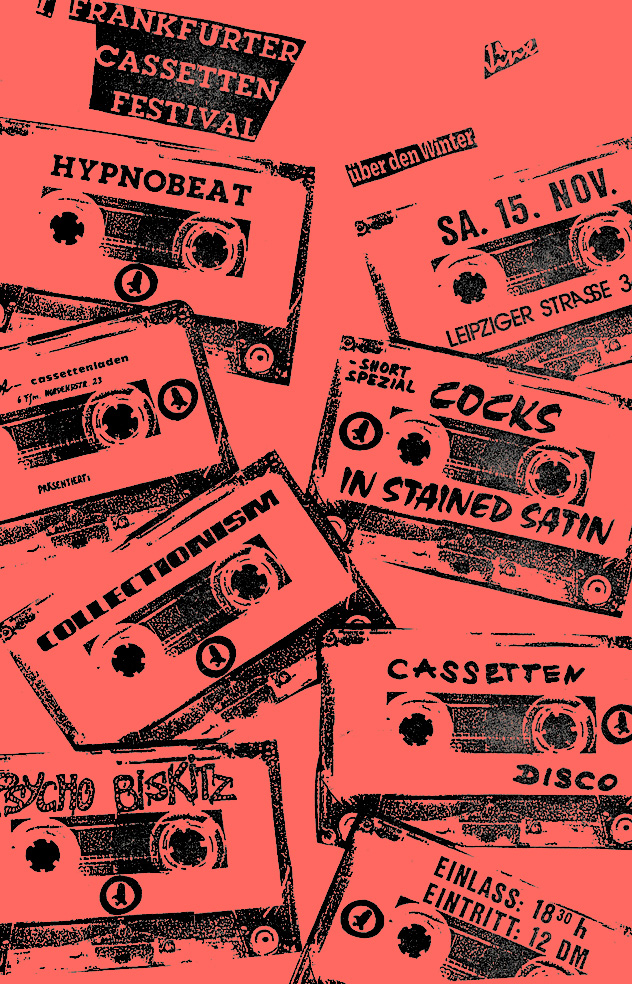
As Phuture and Adonis infected nightclubs and rave culture began, Weiss was struck by the simplicity of the music. "The 303 was the only affordable sequencer, and it took six hours to program a whole song in it," he explains. "With acid there was just one pattern all the time with the stupid sweep effect, and because of some circumstances this was the hot shit at that time suddenly, and for me this was the decline of western civilization."
Weiss is only half-joking, and he readily admits that he was swept up in the multi-sensory rush of warehouse parties. But his indifference towards the music sent him into the bosom of death metal for a spell. Later in the '90s, the allure of the beat brought him back into the fold in a very different way, kick-starting the Narcotic Syntax project and winding up as a core member of the Perlon family under the DJ moniker James Dean Brown. While the membership of Narcotic Syntax shifted over the years, its most fruitful period, in the mid '00s, found Russian producer Yapacc working with Weiss, yielding two EPs for Perlon and many live sets. In 2006 the duo released the Provocative Percussion double-pack, which stripped away the jazz-inflections and went deep on the drums.
"After we recorded our two EPs on Perlon I thought, 'This is quite exhausting, we should strip down our sound to the rhythm core like we used to do with Hypnobeat, but transformed to a studio technique,'" says Weiss. Provocative Percussion was the last Narcotic Syntax release, although you can still find Weiss and Yapacc playing live, sometimes joined by vocalist Robert Conroy, in an ever-shifting amalgamation of house, techno, pop and exotica. Hypnobeat, meanwhile, had been dormant since the early '90s, and it was only through a copyright infringement that a fresh interest in the project was awakened.
Light Sounds Dark had been unearthing forgotten industrial, new wave and synth sounds from the '80s DIY tape scene for a few years, but it was news to Weiss when a Hypnobeat track called "Giving Head To Kilian" appeared on the Dark Matters Toocompilation. Weiss had never considered releasing the track, and Light Sounds Dark had given it a new title, but as he put it himself, "I was not amused, but on the other hand this is really the compilation which seems to have gotten things rolling."
Following this release, in 2012 Fred Gastard from the Serendip Festival in Paris asked Weiss to dig out his machines and play solo as Hypnobeat. Meanwhile, original Hypnobeat member Pietro Insipido got in touch with Weiss to show him "Actio Reactio," a track off Helena Hauff's debut EP on Actress's Werk Discs label. The similarities between the track and Hypnobeat are quite staggering: distorted 808 cowbells and congas spit out through unflinching effects processing. Weiss points to Hypnobeat's "The Arumbaya Fetish" as a close match for the sound Hauff had conjured up.
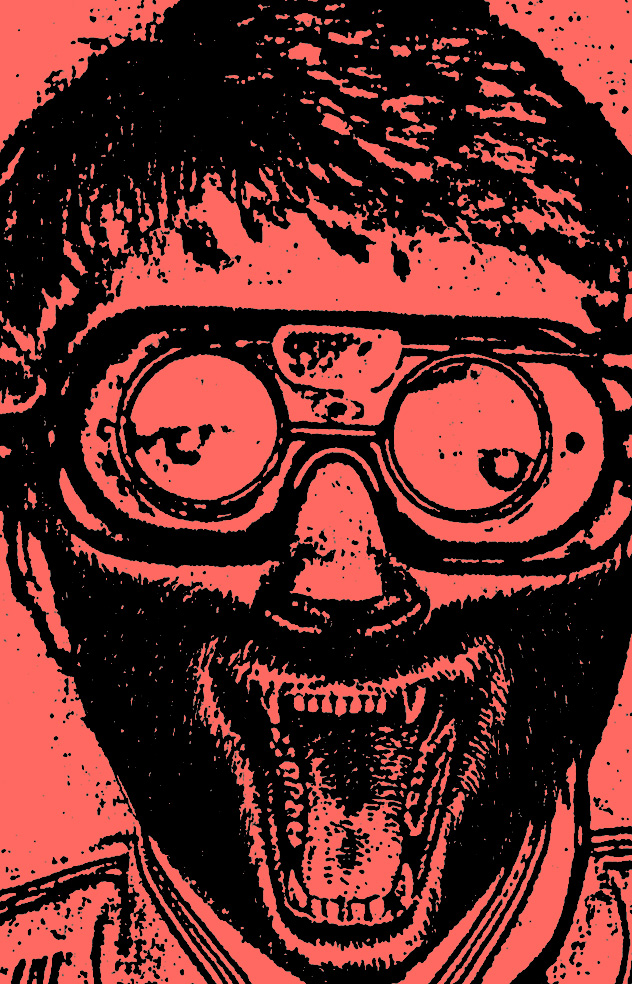
Between that first release and her residency at Hamburg's fabled Golden Pudel club, Hauff established a reputation as a DJ versed in the dark arts of industrial, electro and acid. It's obvious that she lives and breathes this music, and Weiss is clearly impressed by her DJ sets. The creative chemistry between them spans eras and generations.
These are the circumstances that triggered Hypnobeat's resurgence. Gastard had approached Hauff and some other artists with the intention of commissioning them for remixes of Hypnobeat tracks, but when Hauff and Weiss started talking, they quickly hatched a plan to revive Hypnobeat onstage. It was the first time Hauff had entertained the idea of performing live. "I didn't know how to strip my studio down and just use a couple of machines and make it sound interesting," she says. "But it is possible when you do it with another person. I thought, 'We don't have to practice? I only have to take a couple of machines with me? That is fantastic!'"
"So we have a classical case of soulmates here," Weiss says. "And a mutual approach to laziness! We don't phone that much, we write some short emails back and forth and we only meet at the venue, set up everything and we start, and I realise that we are totally synchronous. When I change rhythms, then she also changes something, and I think it's my effect but it's hers."
In the heat of their Bleak Future performance, I could see that Weiss and Hauff have a sensitivity to each other's work. As they hunch over their machines (Hauff on the 707, a 303 and an 808, Weiss on two 808s and a 303) there is little communication, and yet in the swirl of polyrhythmic drum machine blasts moments of spellbinding synergy arise. The 303s, newly introduced to the setup, are notable for their subtlety, with Weiss in particular committed to avoiding the canonical filter sweep in favour of low-throbbing basslines. There are moments of chaos, too, and the occasional slip of a rhythm that comes in off-kilter.

"You can't really go wrong with the machines that we use," says Hauff, "and because we don't play songs you can't make a bad mistake. It's a fine line between it just being some rhythms and it being a bit boring maybe, but it's really exciting, and that's a bit of a gamble."
In keeping with the original Hypnobeat spirit, the quest is not for sonic perfection but rather a trip into the unknown, pushing the machines to their limit and reacting to the idiosyncrasies of the setup. For maybe half of the set in Paris, one of Weiss's key effects units is not coming through on the mixer, so he has to focus on deft programming to create intrigue instead. It's a performance always teetering on the edge, and within that tension exists the intrigue for both artists and audience, though Hauff and Weiss are loath to rest on their laurels when it comes to their approach.
"I think for Hypnobeat what could really work is jamming live with people," Hauff says. She's brimming with optimism about the prospect, having just seen one of her musical heroes, Unit Moebius, improvise over the end of their set with an ominous drone that jelled perfectly with the clamour of their drums. "I think Hypnobeat is not a studio project," she adds.
This doesn't mean there won't be any Hypnobeat records. Already two reissues of the original '80s material are planned on Dark Entries and Serendip, while the possibility of capturing the best live moments on wax are not out of the question. It's a secondary concern though, with their focus on the performance and how to continue to develop it.
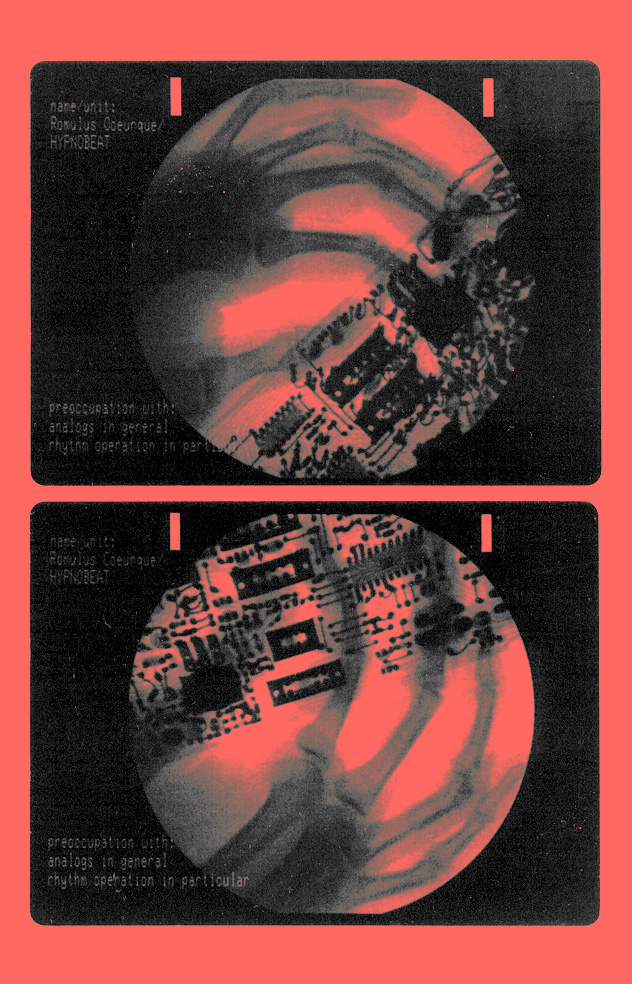
"I told Helena, if we release two or three records the fourth one will be totally boring because it's the same sound," says Weiss. "We decided to add one 303 to our set in Toulouse and now we have two on stage, and this will be another development. Maybe in the future we also concentrate on the 303s and program some tricky basslines or maybe even whole songs, and when this gets boring we find another solution to evaluate the sound."
Whatever ends up happening, the racket the pair are whipping up on club and festival stages is striking a chord with audiences while still sounding confrontational after all this time. "The funny thing is people still consider what Hypnobeat does now as experimental," says Hauff. "It's 30 years after it started, and we're basically doing exactly the same thing as what Hypnobeat did 30 years ago, and it's still experimental."
Interview
